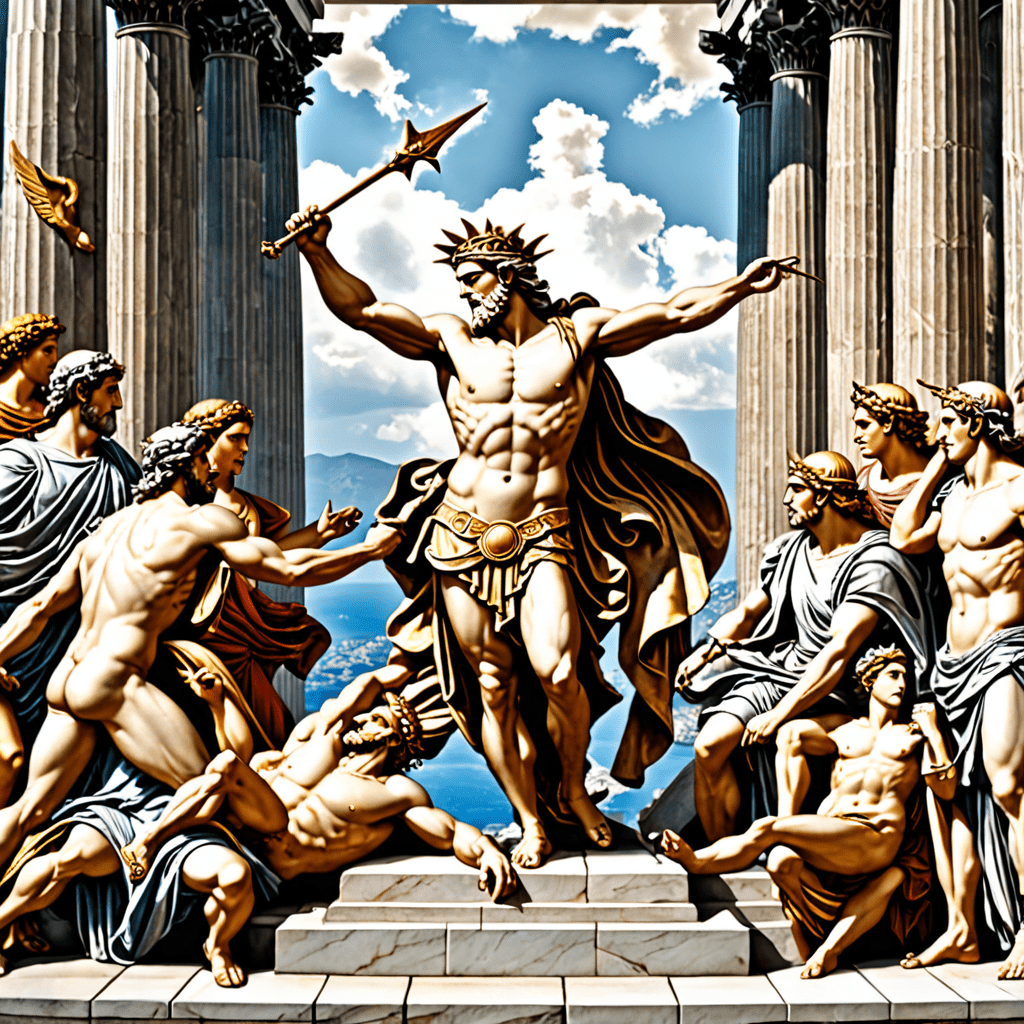Greek Mythology and the Birth of Democracy
Known for its fascinating tales of gods, heroes, and mythical creatures, Greek mythology has had a significant influence on various aspects of human history. One intriguing connection lies in how Greek mythology may have played a role in shaping the birth of democracy, a system of governance that continues to impact modern societies.
The Mythological Roots of Democracy:
Ancient Greece, often cited as the cradle of democracy, was also the land where a rich tapestry of myths and legends thrived. One notable myth that some historians link to the development of democracy is the tale of how Zeus and his siblings overthrew their tyrannical father, Cronus, to establish a more just order in the world. This overthrow of tyranny in mythology can be seen as symbolic of the transition from autocratic rule to more democratic principles.
Athens and Democratic Ideals:
City-states like Athens in ancient Greece not only revered their pantheon of gods but also adopted democratic practices within their governance. The city of Athens, known for its intellectual and cultural achievements, implemented democratic reforms attributed to historical figures like Solon and Cleisthenes. These reforms paved the way for a system where citizens had a voice in decision-making, echoing the values of equality and justice found in Greek myths.
Social Equality and Citizen Participation:
In Greek mythology, heroes and protagonists often challenged oppressive rulers or fate itself, advocating for concepts such as freedom and justice. These themes likely resonated with the citizens of ancient Greece, shaping their beliefs about individual rights and the power of communities to govern themselves. The democratic ideals of equality before the law and citizen participation in governance reflected the mythological ethos of standing up against authoritarian rule.
Legacy and Influence on Modern Democracy:
The legacy of Greek mythology in relation to the birth of democracy endures as a testament to the power of storytelling and ideals. The principles of accountability, transparency, and the rule of law, all fundamental to democracy, can be traced back to the mythological narratives that inspired ancient Greeks to strive for fair and just societies.
In conclusion, the intertwining of Greek mythology and the birth of democracy showcases the enduring impact of imaginative storytelling on human civilization. By looking to the myths of the past, we can gain insights into the foundations of democratic systems and the eternal quest for governance that upholds the rights and voices of its people.
Frequently Asked Questions about Greek Mythology and the Birth of Democracy
What is Greek Mythology?
Greek Mythology refers to the body of myths and legends belonging to the ancient Greeks, concerning their gods and heroes, and the nature of the world.
How did Greek Mythology influence the Birth of Democracy?
Ancient Greeks believed in gods with human-like qualities and flaws, which influenced their understanding of leadership. Myths of equality, justice, and the power of the people played a role in shaping democratic ideals in ancient Athens.
Who were the key figures in Greek Mythology associated with the Birth of Democracy?
Prominent figures include Athena, the goddess of wisdom and strategic warfare, who inspired democratic governance, and Zeus, the king of the gods, whose rule symbolized orderly leadership – important concepts embraced in democratic societies.
What lessons can be learned from Greek Mythology in relation to Democracy?
Greek Mythology highlights the importance of justice, equality, and collective participation in decision-making processes – all fundamental principles that form the basis of democratic systems worldwide.




